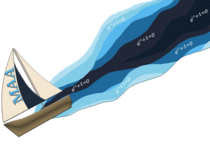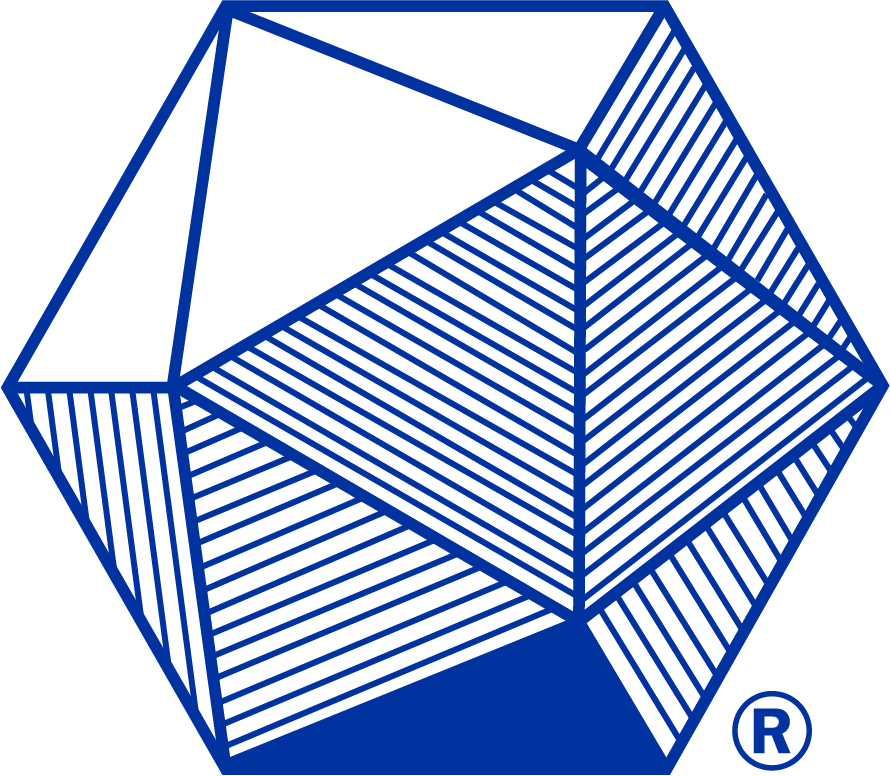Saturday – Mar 29
Location: Fitzelle 202
-
- Time:
- 12:45 pm – 1:10 pm
- Title:
- Solving Linear Systems of ODEs and Discovering Jordan Form
- Speaker:
- Donald Muench (St. John Fisher University)
Abstract
Most courses in Differential Equations include Linear Systems of ODEs in the case of a matrix that can be diagonalized. Also every course on Linear Algebra includes work on eigenvalues and eigenvectors and diagonalization. It is explained that the resulting diagonal matrix conveniently represents the linear transformation relative to the basis of eigenvectors. The textbook for the ODE course shows how the solution to the system is obtained. But the books don’t show what to do in the case of a “defective” matrix – one that doesn’t have a complete basis of eigenvectors. In this paper we present a motivation of the key ideas that would lead to the concept of a generalized eigenvector and then constructing the solution to the system. This motivation can lead to understanding the theory behind the Jordan Canonical Form.
-
- Time:
- 1:15 pm – 1:40 pm
- Title:
- Stability Analysis and Extension of a Discrete-Time Dynamical System for Scaffolded Learning
- Speakers:
- Kris Green (St. John Fisher University), Bernard Ricca (Lyda Hill Institute for Human Resilience, University of Colorado)
Abstract
Van Geert and Steenbeek proposed a coupled, delayed, discrete-time deterministic dynamical system to model scaffolded learning. We provide an analysis of their model to explain the interesting dynamics which they noted. These dynamics are complicated by the presence of intersecting lines of non-isolated, nonhyperbolic fixed points. We also provide interpretation of these trajectories in the context of the teacher-student interactions, and propose an extension to the model that simultaneously collapses the lines of fixed points and is easily interpreted. These results provide the foundation for guiding the collection and integration of experimental data to apply the model to inform the teaching and learning process.
-
- Time:
- 1:45 pm – 2:10 pm
- Title:
- The Root Tree of a 3-Cycle Forest
- Speaker:
- Robert Sulman (SUNY Oneonta)
Abstract
We view an unlabelled directed 3-cycle forest (trees at cycle nodes) as a function $F$ of the graph vertices. Each composite $F \circ F$ as well as square-root $g$ (where $g \circ g=F$) is also a 3-cycle forest. A tree is then associated with a 3-cycle forest $F$ as follows: The base node is $F$ and all square-roots of $F$ (also viewed as tree vertices) are positioned above $F$ and connected by an edge. If a given square-root $g$ of $F$ has square-roots, they will be vertices adjacent to vertex $g$. This process must terminate, and the result is called the “Root Tree of $F$”. This concept leads to a variety of ideas, including: (i) Construction techniques to manipulate root-tree structure. (ii) Sequences $\{F_j\}$ of forests whose corresponding root trees follow notable growth patterns with associated “growth values”. (iii) A class of forests that are considered the same with respect to a given tree. (iv) A notion of independent forests which leads to a root tree product.
-
- Time:
- 2:15 pm – 2:40 pm
- Title:
- Coupled dynamics of COVID-19 transmission and misinformation propagation: a mathematical model approach
- Speaker:
- Ephraim Agyingi (Rochester Institute of Technology)
Abstract
The COVID-19 pandemic underscored the intricate relationship between infectious disease transmission and social dynamics. The spread of misinformation and rumors can significantly impact public health outcomes, exacerbating the pandemic’s severity. This paper presents a mathematical model that integrates COVID-19 transmission dynamics with misinformation propagation. The model is deterministic and compartmental in nature. We conduct a stability analysis to elucidate the model’s behavior and use numerical simulations to explore the impact of different control strategies and misinformation. Our results highlight the critical importance of addressing both biological and social dimensions of the disease, and provide valuable insights for policymakers and public health officials.
Saturday – Mar 29
Location: Fitzelle 203
-
- Time:
- 12:45 pm – 1:10 am
- Title:
- Of Robots and Writing
- Speaker:
- Daniel Look (St Lawrence University)
Abstract
Stylometric tools, such as Burrows’s Delta and sentiment analysis, allow for the examination of large text corpora, revealing patterns that may go unnoticed in close reading. In this talk, we’ll explore various measures used to differentiate authors, focusing primarily on their use of function words—such as “of,” “and,” and “or.” For fun, we’ll apply these techniques to Isaac Asimov’s 'Foundation Universe,' which spans three sub-series and two distinct publication periods (the 1940s–50s and the 1980s–90s), to see how well the robot can classify the different stages of the writer.
-
- Time:
- 1:15 pm – 1:40 pm
- Title:
- The Locus of the Focus of a Rolling Parabola
- Speaker:
- James Marengo (RIT)
Abstract
The parabola $y= x^2$ is rolled without slipping on the parabola $y= - x^2$, which remains stationary. Find the locus of the focus of the rolling parabola. This problem appeared on the 1974 Putnam exam. When one of my students casually asked me in a hallway conversation about my favorite Putnam problems, I mentioned this particular problem. However, I realized after the student left that day that I had misstated the problem! So I decided to try and solve this misstated version of the problem and found that there was a still a "nice" answer.
-
- Time:
- 1:45 pm – 2:10 pm
- Title:
- On Sums of Distances Associated to Regular Polygons
- Speaker:
- Marius Munteanu (SUNY Oneonta)
Abstract
Given a circle, a regular polygon inscribed in this circle, and a variable point on the circle, we investigate the extrema for the sum of (powers of) distances from this point to the vertices of the polygon.
Saturday – Mar 29
Location: Fitzelle 204
Note: This is a Special Session on History of Math, organized by Toke Knudsen (SUNY Oneonta) and Naveen Somasunderam (SUNY Plattsburgh).
-
- Time:
- 12:45 pm – 1:10 pm
- Title:
- An Introduction to a Translation
- Speaker:
- Gary Towsley (SUNY Geneseo)
Abstract
Olympia Nicodemi and I are translating a fourteenth century abacus book into English. I propose to present what is necessary to read and understand this medieval algebra text.
-
- Time:
- 1:15 pm – 1:40 pm
- Title:
- Translating History
- Speaker:
- Olympia Nicodemi (SUNY Geneseo)
Abstract
History takes place in many languages but we share just a few. We depend on translations that do not simply transliterate but also give a sense of time, place, and culture. I will talk about my experience translating a late medieval “Algibra” manuscript that was written in the Tuscan dialect of the 14th century, the particular challenges such manuscripts present and kind of worlds they open to us as students of the history and as teachers of mathematics. Students are most welcome.
-
- Time:
- 1:45 pm – 2:10 pm
- Title:
- Thyra Eibe: Educator, Scholar, Translator of Euclid
- Speaker:
- Toke Knudsen (SUNY Oneonta)
Abstract
The Seaway Section's meeting this semester falls in March 2025, which highlights two things of significance: (1) March is Women's History Month, and (2) 2025 marks the 150th anniversary of women gaining access to university studies in Denmark in 1875. In 1895, two decades after women were allowed to enroll at the university, Thyra Eibe (1866–1955) became the first woman to graduate from the University of Copenhagen with a Master of Arts degree in mathematics. Eibe continued to become a renowned secondary mathematics educator and published several textbooks. Eibe was a scholar as well. Her background in both classics and mathematics allowed her to produce her magnum opus: a complete Danish translation of Euclid's Elements, the first translation of Euclid into a modern language based on Heiberg's scientific edition of the Elements, published 1883–88. The talk will give an overview of Eibe's inspiring life and career.
-
- Time:
- 2:15 pm – 2:40 pm
- Title:
- Hunting for unpublished materials using ArchiveGrid
- Speaker:
- Mark Mckinzie (St. John Fisher University)
Abstract
ArchiveGrid is a freely available database created and maintained by the OCLC, which indexes the archival holdings of about 1500 institutions, primarily located in the USA. In this talk I'll highlight some of the challenges unique to the ArchiveGrid dataset, and explore examples illustrating its features, including my own experience hunting down a privately distributed manuscript from the 1940s.

